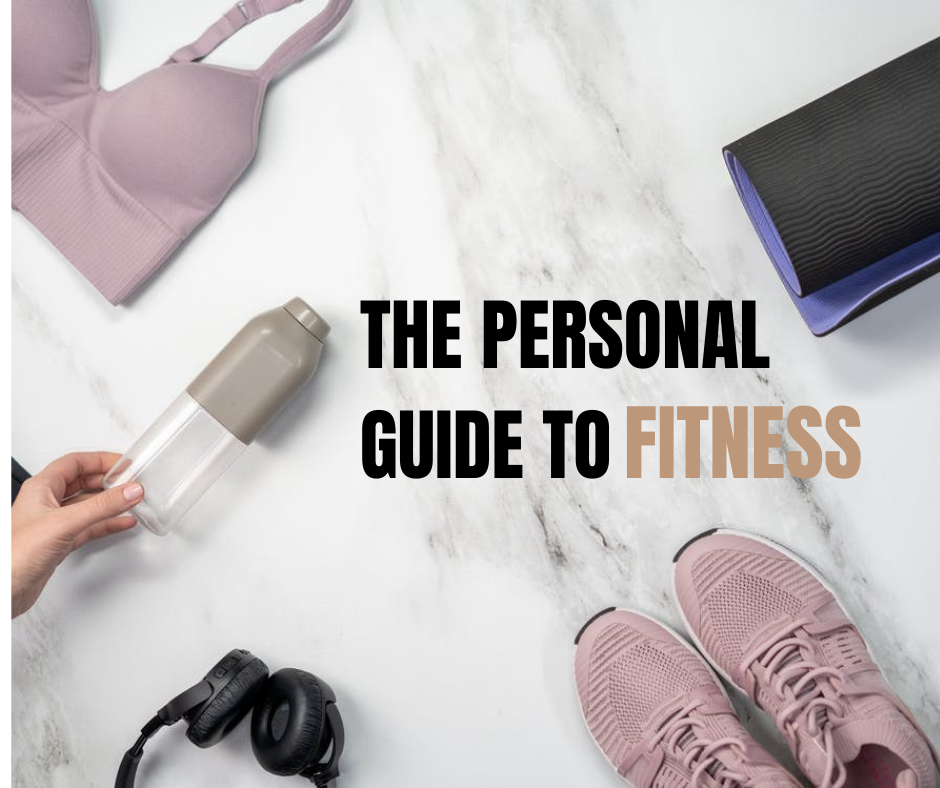We all know the importance of being fit, but it can be tough to know where to start. This guide will help make fitness a personal reality, no matter your starting point. Whether you’re just getting started or you’re looking for ways to take your fitness routine up a notch, we’ve got you covered. So let’s get moving!
A Healthy Diet

A healthy diet is the foundation of any fitness plan. Eating nutritious foods gives your body the energy it needs to exercise and helps reduce the risk of injuries. A healthy diet includes plenty of fruits and vegetables, whole grains, lean protein, low-fat dairy, and healthy fat. To get started on a healthy diet, try to eat more fruits and vegetables at every meal. Add whole grains to your diet by eating whole wheat bread and pasta, or brown rice instead of white rice. Include lean protein at every meal by eating grilled chicken or fish, tofu, or legumes. And finally, choose low-fat dairy products and healthy fats such as olive oil or avocados. By making these simple changes to your diet, you’ll be on your way to better health and fitness!
Regular Exercise
Regular exercise is essential for overall fitness, and there are plenty of great options to choose from. Walking, jogging, bicycling, swimming, and weight training are all great exercises that can help improve your cardiovascular health, strengthen your muscles and bones, and reduce stress levels. Aim for 30 minutes of moderate to vigorous exercise most days of the week, and you’ll be on your way to better fitness in no time.
Adequate Sleep
Most adults need around seven to eight hours of sleep per night. While this may seem like a lot, think about all the things you have to do in a day. You probably need more sleep than you think! Getting enough sleep is crucial for both your physical and mental health. When you’re well-rested, you have more energy to exercise, and you’re also less likely to experience injuries. In addition, adequate sleep helps improve your concentration and memory. So if you’re finding it hard to focus at work or school, make sure you’re getting enough shut-eye. There’s no need to feel guilty about catching up on some extra Z’s – your body will thank you for it!
Stress Management
Stress is a part of life, but chronic stress can have serious consequences for your health. When you’re under constant stress, your body goes into “fight or flight” mode, releasing hormones like cortisol. This can lead to weight gain, insomnia, and an increased risk of injuries. Learning how to manage stress can help you stay on track with your fitness goals. Some helpful stress management techniques include yoga, meditation, deep breathing exercises, and journaling. Taking some time each day to relax and de-stress can make a big difference in your overall health and well-being.
Avoiding Tobacco and Excessive Alcohol Use
Tobacco use and excessive alcohol consumption can both have negative impacts on your health, including your fitness levels. If you smoke cigarettes, it is best to try to quit, and limiting your alcohol intake to no more than two drinks per day can help reduce harmful effects. Even moderate alcohol use has been linked with an increased risk of developing certain chronic diseases, such as heart disease, cancer, and stroke. And of course, tobacco use is a well-known cause of lung cancer. So if you want to maintain good health and fitness levels, it’s important to avoid tobacco products and limit your alcohol consumption.
So, what are you waiting for? Get started on your fitness journey today and see amazing results for yourself. Remember, it’s never too late to become fit and healthy – no matter your age or starting point. What are you most looking forward to on this fitness journey?










